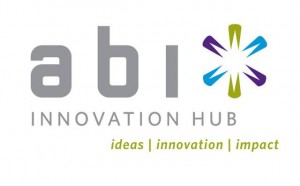Archive for February, 2011
Monday, February 28th, 2011
Determining when to hire a lawyer can be one of the most confusing decisions a new business owner makes. In this edition of “Ask CJ,” New Hampshire Business Resource Center Seacoast Business Resource Specialist Christine Davis explores the subject of business law for beginners.
Do I need to hire a lawyer when I set up my business? What expertise would they provide that I can’t figure out myself?
Many people are leery of lawyers. They appear expensive and we often think that we can get by without one for most of our needs. I am no different. I used a computer program to set up my will and if I get married again one day, I am still on the fence about prenuptial agreements. Foolish but true. But those are personal issues that I am talking about – what about business issues?
 Christine Davis I wanted to get a better understanding of some of the issues that might benefit from legal expertise so I put in a call to Angela Martin from Devine Millimet Attorneys at Law. Angela is the chair of the Small Business Team and they have been advertising free legal assistance for starting a business so I figured she would be a good resource.
While every new business is unique and has different needs, there are some areas that apply to most businesses. Angela said that choosing a business entity is one area that could benefit from professional guidance. For example, if you are seeking venture capital or taking on a partner, do you know which entities best fit your profile? Also, if you plan on hiring staff, do you have intellectual property that you want to protect? Are you thinking of using independent contractors versus employees? Will you be leasing office space? These are just some of the major concerns that if not handled properly could end up creating big, expensive problems later on.
Ms. Martin recommends that businesses hire a lawyer who specializes in business law. Just as you go to an allergist for allergies, you should work with a lawyer who specializes in your area of need. Angela recommends that a new business also find an accountant and an insurance agent to cover and protect those areas of their business.
I know we New Englanders like to do everything ourselves and we take great pride in our frugality. I think it’s great just as long as we know enough about what we are doing to do it right. If you have never owned a business, you just may not know enough to do it all yourself. I recently met with a new business owner who sorely regrets not having a lawyer look at her lease before she signed it. An investment of a few hundred dollars could have saved her thousands. A lawyer will ensure that your business is set up properly and the relationship you establish with them will help you long term as you navigate the unanticipated issues that may arise over time.
Whether you have been in business for 20 years or just getting started, we have the resources and the expertise to answer your questions. You can e-mail me at Christine.Davis@dred.state.nh.us. I look forward to hearing from you.
Christine J. Davis works for the N.H. Division of Economic Development as a resource specialist serving businesses in Rockingham and Strafford counties. Her role is to provide the support needed for businesses so that they may remain viable and growing entities in the community. Ms. Davis lives in Exeter with her two daughters. When not performing her work or parenting duties or shoveling snow she likes to spend her time skiing with her girls or snowshoeing around Exeter.
Tags: Angela Martin, Christine Davis, Devine Milimet Attorneys at Law, New Hampshire Business Resource Center, New Hampshire Division of Economic Development
Posted in NH Business Matters | Comments Off on The Business of Hiring a Lawyer
Thursday, February 24th, 2011
The U.S. Department of Labor today announced the Green Jobs Innovation Fund competition to support opportunities for workers to receive job training in green industry sectors and occupations. Through this competition, the department will award approximately $40 million to support five to eight grantees with awards ranging from $5 million to $8 million each. Eligible applicants will include national and statewide organizations with local affiliates that have existing career training programs and will benefit a minimum of six communities per grant.
 “This grant program is an important effort in supporting green investments and equipping workers with the knowledge, skills and abilities they need to succeed in green occupations,” said Secretary of Labor Hilda L. Solis. “The projects we expect to fund will enable workers to gain new skills that will make them competitive for industries and careers in demand.” “This grant program is an important effort in supporting green investments and equipping workers with the knowledge, skills and abilities they need to succeed in green occupations,” said Secretary of Labor Hilda L. Solis. “The projects we expect to fund will enable workers to gain new skills that will make them competitive for industries and careers in demand.”
These funds will enable training providers to develop programs that incorporate green career pathways by forging linkages between Registered Apprenticeship and pre-apprenticeship programs, and/or integrating the delivery of technical and basic skills training through community-based partnerships. The grants are tied to the Labor Department’s vision of increasing the number of individuals completing training programs with industry-recognized credentials and increasing the number of individuals completing training programs for employment in green jobs.
Prospective applicants are encouraged to view the online tutorial “Grant Applications 101: A Plain English Guide to ETA Competitive Grants” available at http://www.workforce3one.org/page/grants_toolkit. They can register at http://www.Grants.gov to access the solicitation for grant applications. In addition, grant information is posted at http://www.doleta.gov/grants.
Tags: Hilda Solis, US Department of Labor
Posted in NH Business Matters | Comments Off on Green Jobs Innovation Fund Competition Announced
Thursday, February 24th, 2011
In FY 2010 New Hampshire small businesses were awarded over $438 million in contracts by federal agencies, state agencies and as subcontractors to prime contractors. These contracts represent awards to hundreds of small businesses in New Hampshire, who have often worked with the U.S. Small Business Administration (SBA) and the NH Division of Economic Development’s Procurement Technical Assistance Program (NH PTAP) to realize increasing success and profits.
 As more small business have entered the arena of selling their goods or services to government agencies or prime contractors, a common thread has emerged with successful companies. The businesses that understand how the process works and how regulatory requirements can be met, are the same businesses who receive contracts in the government contracting marketplace. As more small business have entered the arena of selling their goods or services to government agencies or prime contractors, a common thread has emerged with successful companies. The businesses that understand how the process works and how regulatory requirements can be met, are the same businesses who receive contracts in the government contracting marketplace.
On Wednesday March 9, 2011, in Manchester and Thursday March 17th in Keene, representatives from the U.S. Small Business Administration (SBA), the NH Procurement Technical Assistance Program (PTAP), and SCORE will host a roundtable discussion with area businesses who want to learn more about the process of selling product and services to federal government agencies and their large business prime contractors. Business owners will also receive an introduction to the resources and services provided by the SBA, NH PTAP and SCORE to assist them if they decide to pursue government contracting with their companies.
Wednesday March 9, 2011 from 1:00 p.m. to 3:00 p.m.
The Greater Manchester Chamber of Commerce, 54 Hanover Street, Manchester, NH
or
Thursday March 17, 2011 from 1:00 p.m. to 3:00 p.m.
The Hannah Grimes Center, 25 Roxbury Street, Keene, NH
Each session is free of charge, but attendance is limited and pre-registration is required.
Please contact Rachael Roderick at (603) 225-1603 or Rachael.roderick@sba.gov for additional information or to register.
Tags: Greater Manchester Chamber of Commerce, Hannah Grimes Center, NH Division of Economic Development, NH Procurement Technical Assistance Program, Rachael Roderick, SCORE, U.S. Small Business Administration
Posted in NH Business Matters | Comments Off on Exploring Government Contracting Subject of Small Business Roundtables
Tuesday, February 22nd, 2011
Recognizing that protecting American patents abroad can present challenges, the New Hampshire International Trade Resource Center will present a seminar titled “Global Intellectual Property Protection” on Thursday, March 10th from 9 a.m.-noon at the New Hampshire Division of Economic Development (172 Pembroke Road).
 Co-sponsored by Sheehan Phinney Bass & Green PA, this seminar will discuss different protection methods and how to obtain them, when and where they may be enforced and what options exist for business officials to protect their company’s intellectual property. The guest speakers for the event are Sheehan, Phinney, Bass & Green intellectual property expert attorneys Doug Verge, Peter Nieves and Daniel Fink. Co-sponsored by Sheehan Phinney Bass & Green PA, this seminar will discuss different protection methods and how to obtain them, when and where they may be enforced and what options exist for business officials to protect their company’s intellectual property. The guest speakers for the event are Sheehan, Phinney, Bass & Green intellectual property expert attorneys Doug Verge, Peter Nieves and Daniel Fink.
The price of the seminar is $40 per person. For registration details, please visit www.exportnh.org/calendar/registration.aspx. For questions, contact Ellie White at (603) 271-8444 or ellie.white@dred.state.nh.us.
Tags: Daniel Fink, Doug Verge, Ellie White, New Hampshire Division of Economic Development, New Hampshire International Trade Resource Center, Peter Nieves, Sheehan Phinney Bass & Green PA
Posted in NH Business Matters | Comments Off on Global Intellectual Property Protection Focus of ITRC Seminar
Tuesday, February 22nd, 2011
This is the second in a series of guest commentaries from the presenters at our Begin With Yes Careerfest to be held on March 15th from 9 a.m.-2 p.m. at White Mountains Community College in Berlin. In this piece, Sojourn Partners Managing Partner Dr. Russ Ouellette demonstrates how tenacity can be key to finding and keeping the right job.
Do you have tenacity? I’m an advocate for maneuvering, being flexible and changing directions when seeking a career path or job, but are we often too quick to change our strategy when we should be focused on the prize? This March I will be presenting at the Begin with Yes Careerfest event about “Effective Communication Skills in the Job Search.” While reviewing my notes in preparation, it became clear that the primary concept I will share with unemployed people is to be tenacious.
 Dr. Russ Ouellette It is a fact that the most rewarding assignments I have had in my career first came with rejection. In many cases I did not have the right background, skills or education. I missed on some unknown trivial attribute, was misunderstood, or just did not perform at my best on the day of the interview. But I’m stubborn, so if I really wanted it, I would just try again, show up again, and people appreciated it. On the second look, I could build a better relationship, be more authentic, direct and sincere. On the second try I had less to lose, and much more to gain, and people noticed this slight increase in confidence.
Tenacity also means being brave about what you want. Interviewers detect when someone’s heart is not in something, and when there is passion it is contagious. So if your heart is set on a particular field, role or job, you will illuminate with enthusiasm and excitement. If you are half hearted, the interviewer will know. While it is easy for me to suggest that people should only do what they want in life, that is not practical. But what is practical is that every job we have adds value to the larger arch of our career. Each professional accomplishment related or not to what we ìreallyî want to do, adds to our repertoire of skills and competencies. Each role we play takes us closer to our future. Therefore, regardless of the role for which you are interviewing you can be excited because you are moving towards what you should be doing in life.
Tenacity also communicates something that is extremely powerful to hiring managers. When my daughter was trying out for her softball team last year, the coach was not looking for skills. He was looking for coachability. Coachability means being able to get past an error, get up when you fall down, push when you have nothing else with which to push. Tenacity fueled my daughter’s ability to attentiveness and commitment. She made the team on her willingness to learn, even when there was a lot to learn.
Our hiring systems of resumes and screening, recruiters and interviews, is fraught with errors. I’m not convinced that any of these systems truly find the best jobs for people, or the best candidates for companies. However, I am convinced that our behavior once in front of people has a powerful impact and makes a difference. I have been in many post interview meetings, and the first response to the question, what do you think of the candidate is ìI liked herî. And that had nothing to do with the resume.
Dr. Russ Ouellette is the managing partner of Sojourn Partners, a Bedford-based executive leadership coaching firm. He can be reached at (603) 472-8103 or russ@sojournpartners.com. He can also be twittered @RussOuellette or Facebooked – Sojourn Partners.
The Begin With Yes Careerfest will be held at White Mountains Community College in Berlin on Tuesday, March 15th from 9 a.m.-2 p.m. Free and open to those who are unemployed or underemployed, the event will include four informative seminars and a keynote speech by Paul Boynton, award-winning human services CEO & author of the inspirational book, “Begin With Yes.” Space for the event is limited to the first 200 people and lunch will be served. To register, contact Leslie Sherman at lsherman@dred.state.nh.us or call 603-271-2581.
Through a special arrangement with Manchester-based EZStream, the entire event will streamed live at http://bit.ly/NoBullStream
Tags: Begin With Yes Careerfest, Dr. Russ Ouellette, EZStream, Sojourn Partners, White Mountains Community College
Posted in NH Business Matters | Comments Off on Communicating Tenacity Key to an Effective Job Search
Thursday, February 17th, 2011
Small businesses facing maturity of commercial mortgages or balloon payments before Dec. 31, 2012, may be able to refinance their mortgage debt with a 504 loan from the U.S. Small Business Administration under a new, temporary program announced today.
 The new refinancing loan is structured like SBA’s traditional 504, with borrowers committing at least 10 percent equity and working with third-party lending institutions and SBA-approved Certified Development Companies in the standard 50 percent/40 percent split. A key feature of the new program is that it does not require an expansion of the business in order to qualify. The new refinancing loan is structured like SBA’s traditional 504, with borrowers committing at least 10 percent equity and working with third-party lending institutions and SBA-approved Certified Development Companies in the standard 50 percent/40 percent split. A key feature of the new program is that it does not require an expansion of the business in order to qualify.
SBA will begin accepting refinancing applications on Feb. 28. The program, authorized under the Small Business Jobs Act, will be in effect through Sept. 27, 2012.
“The economic downturn of recent years and the declining value of real estate have had a significant, negative impact on many small businesses with mortgages maturing within the next few years,” said SBA Administrator Karen Mills. “As a result, even small businesses that are performing well and making their payments on time could face foreclosure because of the difficulties they face in refinancing and restructuring their mortgage debt. This temporary program is another tool SBA can provide to help these small businesses remain viable and protect jobs.”
The SBA initially will open the program to businesses with immediate need due to impending balloon payments before Dec. 31, 2012. SBA will revisit the program later and may open it to businesses with balloon payments due after that date or those that can demonstrate strong need in other ways.
“We are making this initial restriction to make sure our funding goes first to small businesses with the most need,” said Steve Smits, SBA Associate Administrator of Capital Access.
Borrowers will be able to refinance up to 90 percent of the current appraised property value or 100 percent of the outstanding mortgage, whichever is lower, plus eligible refinancing costs. Loan proceeds may not be used for other business expenses. Existing 504 projects and government-guaranteed loans are not eligible to be refinanced.
Congress authorized SBA to approve up to $15 billion in loans under this program ($7.5 billion in both fiscal 2011 and 2012). Together with the first mortgage, this temporary program will provide up to $33.8 billion of total project financing. Additional fees charged to the borrower will cover the cost of this refinancing program and as a result no subsidy will be needed. The program is expected to benefit as many as 20,000 businesses.
SBA’s traditional 504 loan program is a long-term financing tool, designed to encourage economic development within a community. A 504 loan provides small businesses with long-term, fixed-rate financing to acquire major fixed assets for expansion or modernization.
Typically, a 504 project includes three elements: a loan (or first mortgage) secured with a senior lien from a private-sector lender covering up to 50 percent of the project cost, a second mortgage secured with a junior lien from an SBA Certified Development Company (backed by a 100 percent SBA-guaranteed debenture) covering up to 40 percent of the cost, and a contribution of at least 10 percent equity from the small business borrower.
Tags: Congress, Karen Mills, SBA, Steve Smits, U.S. Small Business Administration
Posted in NH Business Matters | Comments Off on SBA Launches Temporary Program for Commercial Real Estate Refinancing
Tuesday, February 15th, 2011
In most areas of the country, creating a “wicked” product is viewed as a negative. In New England, it wins you an award.
 Yes, creating a “wick-it cool” eco-friendly soy candle that burns cleaner and longer than candles created with other types of wax has led to Wick-It Cool Candles being named the “Innovation Rocks!” award winner by the New Hampshire Business Resource Center for the month of February. Yes, creating a “wick-it cool” eco-friendly soy candle that burns cleaner and longer than candles created with other types of wax has led to Wick-It Cool Candles being named the “Innovation Rocks!” award winner by the New Hampshire Business Resource Center for the month of February.
Based in Manchester, Wick-It Cool Candles produces 100 percent soy, handmade massage candles. Wick-It Cool Candles are wicked with lead free cotton wicks and poured into recyclable glass jars with dye free candles available for the most eco-conscious consumers.
A member of NH Made, Wick-It Cool Candles’ products are created with soy wax, a renewable resource grown in the U.S. The company uses a unique creative process, which results in candles “unsurpassed for fragrance and presentation.”
“Wick-It Cool Candles is yet another example of a small local company that started as a grain of an idea and blossomed into a fully operating business,” said New Hampshire Division of Economic Development Interim Director Roy Duddy. “By creating an innovative product that draws customers from across the U.S. and Canada while preserving the environment, Wick-It has grown and thrived in the Granite State.”
For more information about Wick-It Cool Candles, visit www.wickitcoolcandles.com.
“Innovation Rocks!” is an initiative sponsored by the New Hampshire Division of Economic Development’s Business Resource Center in coordination with Rock 101 (WGIR-FM) and the The Pavilion at the Hilton Garden Inn Manchester Downtown to celebrate the creativity and ingenuity of New Hampshire innovators.
Tags: Innovation Rocks!, New Hampshire Business Resource Center, New Hampshire Division of Economic Development, NH Made, Rock 101, Roy Duddy, The Pavilion at the Hilton Garden Inn Manchester Downtown, WGIR-FM, Wick-It Cool Candles
Posted in NH Business Matters | Comments Off on Wick-It Cool Candles Named February “Innovation Rocks!” Award Winner
Friday, February 11th, 2011
Over the next few weeks, we’re going to be featuring some guest commentaries from the great professionals who’ve volunteered to speak at the Begin With Yes Careerfest scheduled for March 15th at White Mountains Community College in Berlin. This week’s entry is from the Division of Economic Development’s “social media guru” Allen Voivod of Epiphanies, Inc. Thanks for such a great commentary Allen!
Social networks influence our lives in countless and unexpected ways, including how we lose, find, and change jobs.
The stories are out there – good and bad. A Cleveland software architect profiled in Time Magazine who, after losing his position, landed a new one in just 11 days thanks to connections on Facebook and Twitter. A freelancer who lost out on a gig at Cisco because of an all-too-honest tweet.
 Epiphanies Inc.'s Allen Voivod There should be no surprises here – networking in real life also helps people land jobs faster, and people have been losing jobs for more than a decade thanks to ill-advised emails. But social networks put a much more powerful spin on these concepts in the world of work. So, how do you adapt? Here are five tips to help your cause.
1. Think like HR does. According to a recent survey of hiring professionals, more than 80% use online search and social media profiles to narrow down fields of job candidates. They even use online channels to find “passive candidates” – already employed people who’d consider a better deal at a different company. What will those hiring professionals find out about you?
2. Google yourself. Who does Google think you are? Do the results help or hurt? Regardless of what’s there now, you can affect those results by opening accounts on Facebook, LinkedIn, Twitter, and other social networks. These sites are so popular, they routinely come up on the first page of search results. And search optimization studies show that most people don’t go past the first page on Google.
3. Privacy control. All social platforms offer privacy options to help you control what’s shared publicly and what’s kept private. Use them! Furthermore, you’re already careful about what job-related things you say via plain old email, right? Use that same standard of caution with your social networking updates, and you’ll be just fine.
4. Plan ahead. Develop your networks now, before you actually need them. Add content to social networking profiles, and grow them over time. Like many things in life, creating an effective online presence doesn’t happen overnight. Don’t wait until disaster strikes – build your safety net steadily, so it’s there to catch you when you need it.
5. Creation versus curation. So you have a Facebook profile, a Twitter handle, and LinkedIn account – now what? You feed it content that shows you care about the work you do. If you find creating content difficult to do on a regular basis, go for curation – finding and sharing content from other sources with your own network. Share an opinion about other people’s content, and you get both creation and curation in one shot.
Whether you’re currently employed or currently seeking work, managing your online presence, reputation, and personal brand is critical for your professional growth and potential. If you’re not visible online, you’re essentially invisible to the executive, headhunter, insider, benevolent connection, or hiring manager filling or creating a great position you want and deserve.
Allen Voivod is co-owner of Epiphanies, Inc., a social marketing and success strategies firm based in Gilford. He is one of five featured speakers at the upcoming “Begin With Yes Career Fest,” March 15th at White Mountains Community College. The event is free, but space is limited, so register now! Email lsherman@dred.state.nh.us to attend in person, or go to http://bit.ly/NoBullStream on 3/15 to watch real-time video of the event.
Tags: Allen Voivod, Begin With Yes Careerfest, Cisco, Epiphanies Inc., Facebook, Time Magazine, Twitter
Posted in NH Business Matters | Comments Off on Five Key Social Media Tips for Job Search Success
Friday, February 11th, 2011
Lenders who participate in the U.S. Small Business Administration’s Preferred Lender Program can approve loans through the agency’s new Small Loan Advantage program beginning Feb. 15. At the same time, the agency will begin accepting applications from community-based, mission-focused lenders who are interested in making SBA-guaranteed loans through the new Community Advantage program.
 Both the Small Loan Advantage and Community Advantage programs were announced in December as part of the agency’s efforts to increase the number of lower dollar loans being made to small businesses and entrepreneurs in underserved communities. Both the Small Loan Advantage and Community Advantage programs were announced in December as part of the agency’s efforts to increase the number of lower dollar loans being made to small businesses and entrepreneurs in underserved communities.
“Businesses in underserved communities, including minority and women-owned as well as businesses in rural areas, have been among the hardest hit by the recent economic downturn,” said SBA Administrator Karen Mills. “These two new Advantage initiatives can provide critical support to help these businesses and entrepreneurs get much needed financing to start and grow, which will translate into more jobs in these communities.”
Built on what the agency refers to as its “Advantage” platform, both Small Loan Advantage and Community Advantage offer a streamlined application process for SBA-guaranteed 7(a) loans up to $250,000. Advantage loans will come with the regular 7(a) government guarantee, 85 percent for loans up to $150,000 and 75 percent for those greater than $150,000.
Starting Feb. 15, any of the 610 financial institutions across the country in the SBA’s Preferred Lender Program (PLP) can approve loans using the new Small Loan Advantage process. Under PLP, which includes most of the agency’s highest volume lenders, SBA delegates the final credit decisions to these lenders.
Additionally, on Feb. 15, SBA will begin accepting applications from financial institutions who are interested in becoming Community Advantage lenders. Through Community Advantage, the agency will expand the points of access small business owners have for getting loans by opening SBA’s 7(a) loan program to “mission-focused” financial institutions, including Community Development Financial Institutions, SBA’s Certified Development Companies and SBA’s nonprofit microlending intermediaries. Community Advantage will leverage the experience these institutions already have in lending to minority, women-owned and start-up companies in economically challenged markets, along with their management and technical assistance expertise, to help make their borrowers successful.
SBA and U.S. Department of Commerce studies have shown the importance of lower-dollar loans to small business formation and growth in underserved communities. With that in mind, the two new loan initiatives – Small Loan Advantage and Community Advantage – are aimed at increasing the number of lower-dollar SBA 7(a) loans going to small businesses and entrepreneurs in underserved communities. The agency’s most popular loan product, 7(a) government-guaranteed loans can be used for a variety of general business purposes, including working capital and purchases of equipment and real estate.
Community-based organizations interested in becoming Community Advantage lenders should contact the closest SBA district office.
Tags: Community Advantage program, Karen Mills, Preferred Lender Program, Small Loan Advantage program, U.S. Department of Commerce, U.S. Small Business Administration
Posted in NH Business Matters | Comments Off on SBA Lending Initiatives for Underserved Communities Launch on Feb. 15
Wednesday, February 9th, 2011
Congrats to our friends at the abi Innovation Hub!!
The abi Innovation Hub (abi) (formerly Amoskeag Business Incubator) has unveiled its formal rebranding and 2011 strategic plan focused on technology innovation. The 14-year-old 501(c)(3), originally formed as a collaboration between Southern New Hampshire University and the City of Manchester, believes its stable foundation coupled with its new vision will elevate its relevance and attract the most innovative minds, ideas and businesses in New England.
 “It’s invigorating to have the abi back on the path to changing the business landscape in New Hampshire by creating jobs and wealth, fostering the area’s entrepreneurial climate and accelerating growth of local industry. The rediscovered energy is contagious,” said Ed French, long standing board member and MBA Director from Franklin Pierce University. “It’s invigorating to have the abi back on the path to changing the business landscape in New Hampshire by creating jobs and wealth, fostering the area’s entrepreneurial climate and accelerating growth of local industry. The rediscovered energy is contagious,” said Ed French, long standing board member and MBA Director from Franklin Pierce University.
In October 2010, the abi brought on Jamie Coughlin as VP, Strategic Initiatives & Entrepreneur in Residence focused on strategic growth, recruitment of technology startups and innovation, strengthening of affiliate programs, formation of business and non-profit partnerships, building of support programs and services for members, and the creation of a national voice representing the abi and innovation out of New Hampshire. Working alongside Michele Petersen, VP, Operations, who has been with the abi for three years, Coughlin, a serial entrepreneur and graduate of Princeton University, will lead a new vision of open source entrepreneurship.
“These are exciting times for people with big ideas and the new abi will literally be a hub for all things startup,” added Coughlin. “In recent years, there has been an influx of new innovation centers, business mentor programs, next generation incubators, angel and venture capital portfolios forming and seeing great success. We recognize that we’ve been behind the times a bit and that many of these organizations have thrived in larger cities, but our new leadership and board is dedicated to harnessing and catapulting innovation in our region.”
Manchester-based marketing and advertising agency, Griffin York & Krause (GY&K), provided the new branding, packaging and positioning for the abi free of charge, displaying its commitment to entrepreneurship and technology in New England. Touted as a marketing innovation firm, GY&K, dove in with both feet helping to create the abi’s new vision and tagline, “ideas | innovation | impact.”
The abi has also increased its board of directors from six to 10 members, many focused on Internet startups with specialties in venture capital and strategic investments, patent and IP law, technology operations and production, real estate and property management, sales, marketing, customer service and finance and accounting. Each director brings a shared focus of sustainability and long-term viability, fueled by revenue growth and profitability, which yields continued relevancy for the abi.
“We knew that we needed to evolve and shift our positioning to return to prominence. Rebuilding our board was our starting point,” said Pete Lachance, Board Chair of the abi and CPA at Howe, Riley & Howe. “We’ve rebranded, are building out a socially connected website, assembled a stable and engaged board, livened up and wired our space, partnered with key technology companies and VC firms, and even have an event series in the works. You will see our board serve as a moving board of mentors for all abi companies past, present and future. Do you have an idea? Are you a startup or early phase business looking to work amongst likeminded entrepreneurs? Join the abi community.”
Tags: Ed French, Franklin Pierce University, Griffin York & Krause, Howe Riley & Howe, Jamie Coughlin, Michele Peterson, Pete Lachance, Southern New Hampshire University
Posted in NH Business Matters | Comments Off on Amoskeag Business Incubator Relaunches as abi Innovation Hub
|











 “This grant program is an important effort in supporting green investments and equipping workers with the knowledge, skills and abilities they need to succeed in green occupations,” said Secretary of Labor Hilda L. Solis. “The projects we expect to fund will enable workers to gain new skills that will make them competitive for industries and careers in demand.”
“This grant program is an important effort in supporting green investments and equipping workers with the knowledge, skills and abilities they need to succeed in green occupations,” said Secretary of Labor Hilda L. Solis. “The projects we expect to fund will enable workers to gain new skills that will make them competitive for industries and careers in demand.”  As more small business have entered the arena of selling their goods or services to government agencies or prime contractors, a common thread has emerged with successful companies. The businesses that understand how the process works and how regulatory requirements can be met, are the same businesses who receive contracts in the government contracting marketplace.
As more small business have entered the arena of selling their goods or services to government agencies or prime contractors, a common thread has emerged with successful companies. The businesses that understand how the process works and how regulatory requirements can be met, are the same businesses who receive contracts in the government contracting marketplace.  Co-sponsored by Sheehan Phinney Bass & Green PA, this seminar will discuss different protection methods and how to obtain them, when and where they may be enforced and what options exist for business officials to protect their company’s intellectual property. The guest speakers for the event are Sheehan, Phinney, Bass & Green intellectual property expert attorneys Doug Verge, Peter Nieves and Daniel Fink.
Co-sponsored by Sheehan Phinney Bass & Green PA, this seminar will discuss different protection methods and how to obtain them, when and where they may be enforced and what options exist for business officials to protect their company’s intellectual property. The guest speakers for the event are Sheehan, Phinney, Bass & Green intellectual property expert attorneys Doug Verge, Peter Nieves and Daniel Fink. 
 The new refinancing loan is structured like SBA’s traditional 504, with borrowers committing at least 10 percent equity and working with third-party lending institutions and SBA-approved Certified Development Companies in the standard 50 percent/40 percent split. A key feature of the new program is that it does not require an expansion of the business in order to qualify.
The new refinancing loan is structured like SBA’s traditional 504, with borrowers committing at least 10 percent equity and working with third-party lending institutions and SBA-approved Certified Development Companies in the standard 50 percent/40 percent split. A key feature of the new program is that it does not require an expansion of the business in order to qualify.  Yes, creating a “wick-it cool” eco-friendly soy candle that burns cleaner and longer than candles created with other types of wax has led to Wick-It Cool Candles being named the “Innovation Rocks!” award winner by the New Hampshire Business Resource Center for the month of February.
Yes, creating a “wick-it cool” eco-friendly soy candle that burns cleaner and longer than candles created with other types of wax has led to Wick-It Cool Candles being named the “Innovation Rocks!” award winner by the New Hampshire Business Resource Center for the month of February.
 Both the Small Loan Advantage and Community Advantage programs were announced in December as part of the agency’s efforts to increase the number of lower dollar loans being made to small businesses and entrepreneurs in underserved communities.
Both the Small Loan Advantage and Community Advantage programs were announced in December as part of the agency’s efforts to increase the number of lower dollar loans being made to small businesses and entrepreneurs in underserved communities.  “It’s invigorating to have the abi back on the path to changing the business landscape in New Hampshire by creating jobs and wealth, fostering the area’s entrepreneurial climate and accelerating growth of local industry. The rediscovered energy is contagious,” said Ed French, long standing board member and MBA Director from Franklin Pierce University.
“It’s invigorating to have the abi back on the path to changing the business landscape in New Hampshire by creating jobs and wealth, fostering the area’s entrepreneurial climate and accelerating growth of local industry. The rediscovered energy is contagious,” said Ed French, long standing board member and MBA Director from Franklin Pierce University.